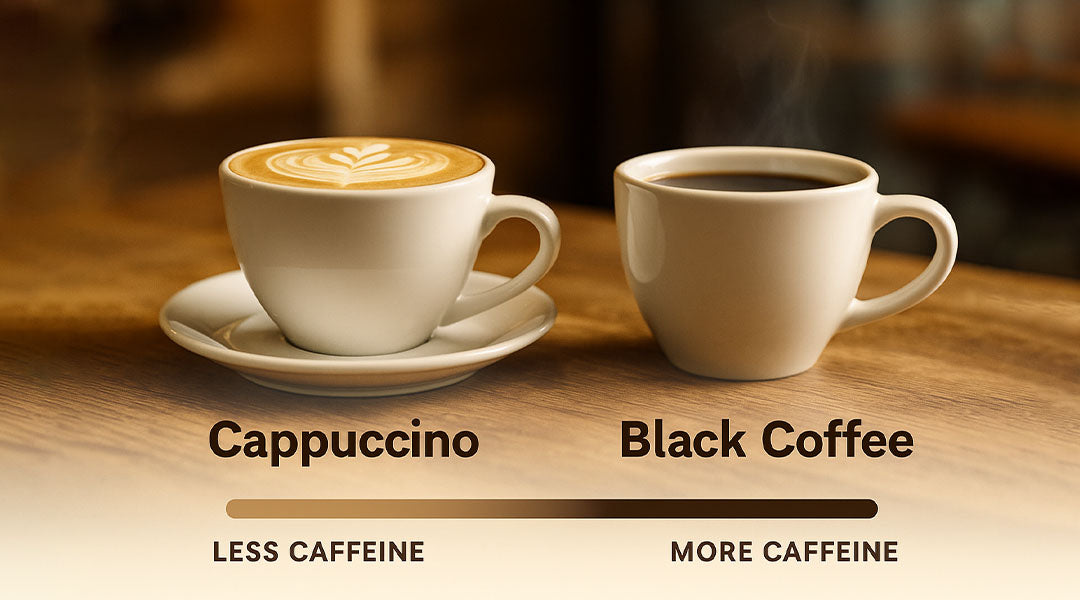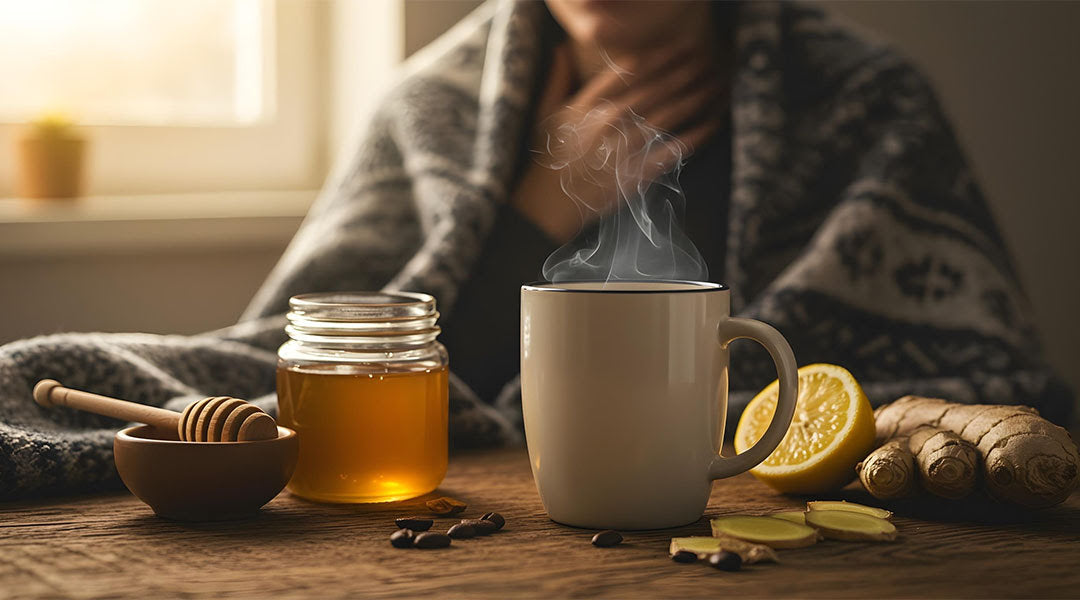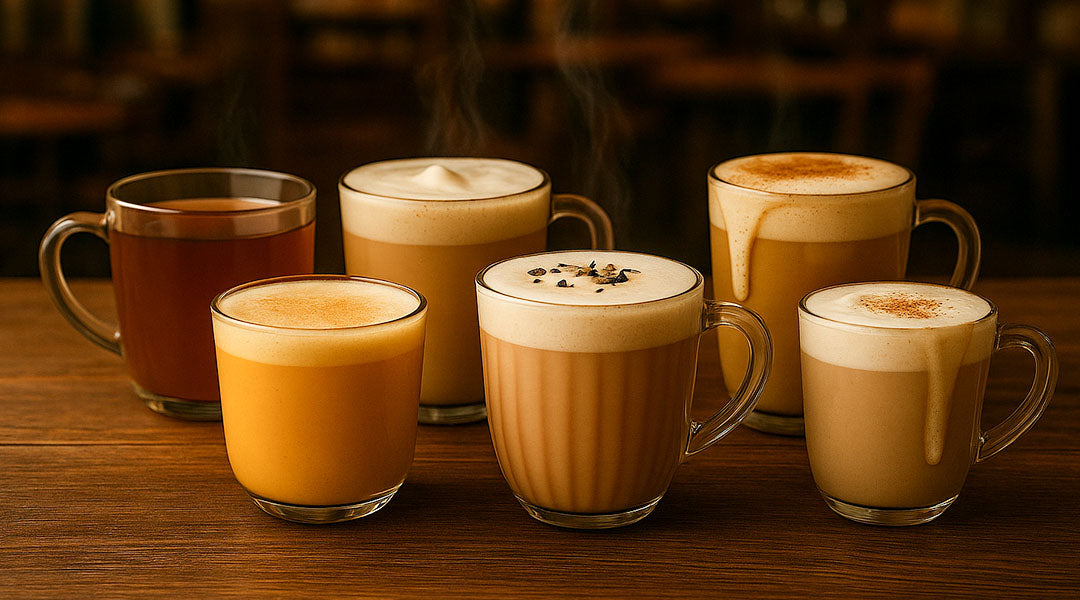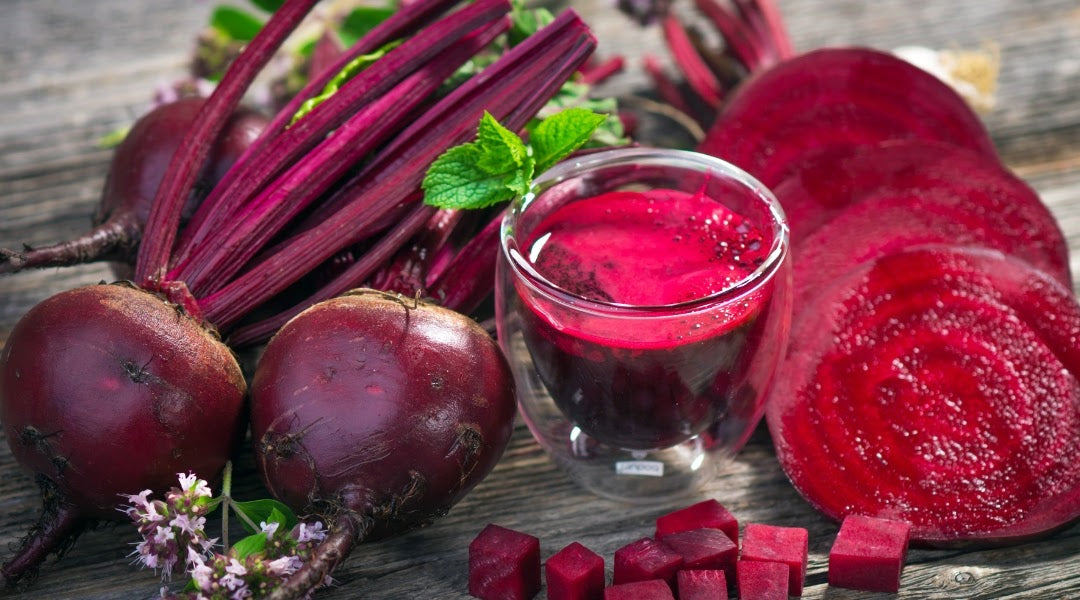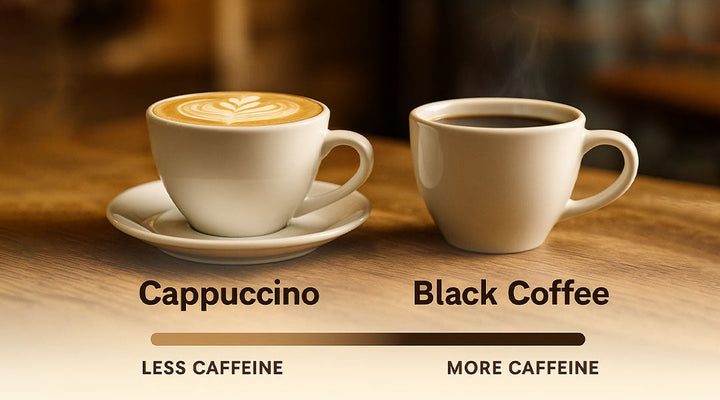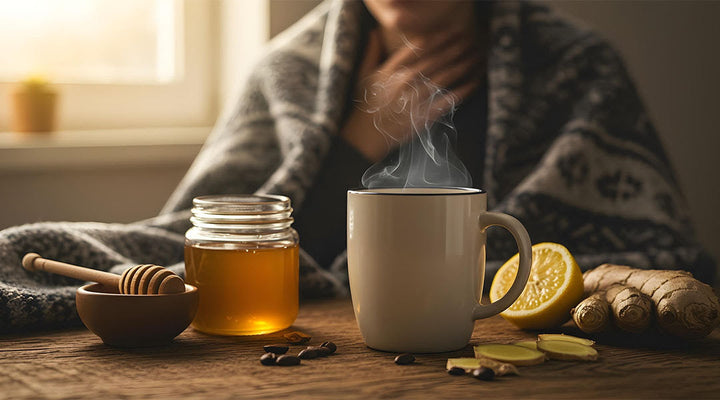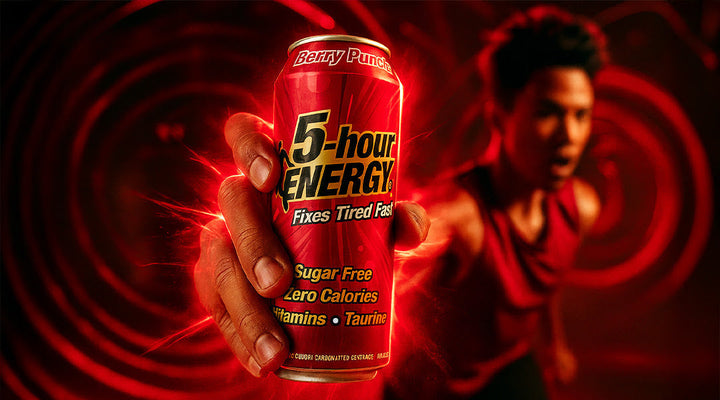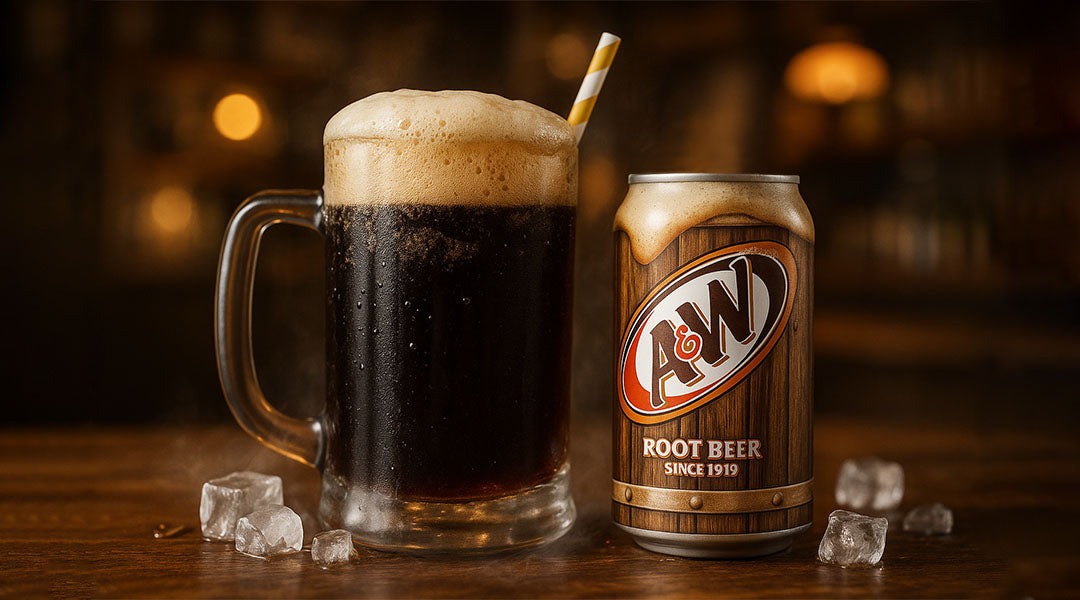
Is There Caffeine in Root Beer?
Quick Answer
Most root beer brands sold in North America have no caffeine. The main exception is regular Barq's, which has 22mg of caffeine per 12oz can. Popular brands like A&W, Mug, Dad's, and Diet Barq's are totally caffeine-free. Check ingredient labels for caffeine if you're trying to avoid it, as manufacturers must list it when added.
Key Takeaways
- Most root beer brands have zero caffeine.
- Regular Barq's is the main exception with 22mg caffeine per can.
- Diet Barq's has no caffeine.
- Caffeine must appear on ingredient labels when added.
- Root beer often has fewer additives than cola.
- Traditional root beer came from sassafras root bark.
You grab a cold root beer at a party, assuming it's a safe choice to avoid caffeine before bed. But later you can't sleep and wonder: did that root beer have caffeine? Dr. Charles Livingston says: "Many patients assume all root beers are caffeine-free, but that's not always true. Knowing which brands include caffeine helps those with sensitivities, sleep issues, or health conditions make better choices." It happens more than you expect. No big drama just answers today.
The History of Root Beer

Root beer's roots go back to early American history, with traditional recipes from the 18th century. Unlike many modern sodas, it began as a lightly alcoholic "small beer" brewed from the root bark of the sassafras tree (Sassafras albidum) or the sarsaparilla vine.
Early Americans and indigenous peoples used sassafras for its healing uses. Pharmacists and druggists sold root drinks for health long before they were everyday treats.
Charles Elmer Hires, a pharmacist and teetotaler, made the first commercial root beer. He showed his "root tea" at the 1876 Philadelphia Centennial Exposition but renamed it "root beer" to appeal to Pennsylvania coal miners. By 1893, root beer had spread across the United States, with Hires leading the way in mass production.
The FDA banned safrole (the main flavor oil in sassafras) in 1960 after research showed it caused liver damage and cancer in lab animals. Modern root beers use artificial sassafras flavor or safrole-free sassafras extract.
Today’s root beer is a sweet, bubbly, non-alcoholic soft drink known for its thick, foamy head and bold, distinct taste that sets it apart from other sodas.
Caffeine Content in Popular Root Beer Brands

Most root beer brands sold in North America contain no caffeine at all. According to the Mayo Clinic's detailed list of caffeine in popular drinks, typical root beer has zero caffeine per serving, which sets it apart from many other sodas.
Here's a quick look at caffeine in popular root beer brands:
Caffeine-Free Root Beer Brands:
- A&W Root Beer (regular and diet)
- Mug Root Beer (regular and diet)
- Dad's Root Beer (regular and diet)
- IBC Root Beer
- Diet Barq's Root Beer
- Stewart's Root Beer
- Sprecher Root Beer
Root Beer With Caffeine:
Regular Barq's Root Beer: 22mg per 12oz can
This makes Barq's regular root beer the notable exception in the root beer category. Its line "Barq's has bite" nods to this caffeine level, which gives it a mild lift compared to other brands.
For comparison, a typical cup of coffee has about 80-100 mg of caffeine, and a can of cola has around 35-45mg. At 22mg per can, even caffeinated Barq's has less than half the caffeine of most colas.
Why Some Root Beers Contain Caffeine

But why does Barq's include caffeine when most root beers don't? The short answer: to stand out and shape its flavor.
Barq's began in 1898 as a sarsaparilla-based root beer simply labeled "Barq's." The company likely added caffeine to give it a unique angle against rivals like Hires and A&W.
Caffeine has a light bitter note that can fit the complex flavor of root beer. In Barq's case, that hint may boost what they call their "bold" flavor compared to sweeter root beers.
Interestingly, even Barq's drops caffeine in their diet version. This shows the caffeine in their regular soda is a clear flavor choice, not a must-have ingredient.
How to Identify Caffeine-Free Root Beer
Need to skip caffeine? It’s easy to check your root beer. The FDA requires brands to list added caffeine on the ingredient label.
Look for “caffeine” in the ingredients. If it isn’t listed, the drink is caffeine-free. But the FDA doesn’t require the exact amount on that list.
On most cans, the Nutrition Facts panel shows “Caffeine 0 mg.” A typical label for root beer lists zero caffeine along with calories and sugar.
If you are still unsure about a brand then visit the company website or contact the maker for a clear answer.
Root Beer Nutrition Facts

Now, what’s in root beer? A typical 12 oz can contain:
- Calories: 152
- Total Fat: 0 g
- Sodium: 48 mg, 2% DV
- Total Carbohydrates: 39 g, 14% DV
- Sugars: 39 g
- Protein: 0 g
- Caffeine: 0 mg, except Barq’s regular
Most root beers use carbonated water, sugar or high fructose corn syrup, caramel color, natural flavors, artificial flavors, sodium benzoate as a preservative, and citric acid. Diet versions swap sugar for artificial sweeteners like aspartame.
Root beer has less acid than many sodas, so it can be gentler on tooth enamel. It also skips the phosphoric acid found in colas, and some studies link that acid to calcium loss.
Root Beer Compared to Other Beverages

How does root beer compare on caffeine?
- Caffeine Content Comparison:
- Regular Coffee (8 oz): 95–200 mg
- Black Tea (8 oz): 40–70 mg
- Green Tea (8 oz): 25–45 mg
- Cola (12 oz): 35–45 mg
- Energy Drinks (8 oz): 70–100 mg
- Regular Barq’s Root Beer (12 oz): 22 mg
- Other Root Beers (12 oz): 0 mg
So, most root beers work well if you want no caffeine at all. Even regular Barq’s has far less caffeine than cola or tea.
For kids, people who are pregnant, or anyone sensitive to caffeine, this makes choices simpler.
Conclusion
Most root beers sold in North America have no caffeine. Regular Barq’s is the big exception at 22 mg per 12 oz serving. Diet Barq’s and major brands like A&W, Mug, and Dad’s are caffeine-free.
Root beer started as a tonic and grew into a sweet treat. The old sassafras recipe changed over time, but the bold flavor stayed.
If you track caffeine, root beer is usually a safer pick than colas or other sodas. Read the label when you’re unsure, as brands must list added caffeine.


Frequently Asked Questions (FAQs)
Does all root beer have caffeine?
No. Most brands have none. Regular Barq’s is the key exception, with 22 mg per 12 oz serving.
Is A&W root beer caffeine-free?
Yes. Regular A&W and Diet A&W both have no caffeine.
Why does Barq’s have caffeine, but other root beers don’t?
Barq’s adds caffeine to give its signature bite and set it apart from other brands.
Is Diet Barq’s caffeine-free?
Yes. Diet Barq’s has no caffeine.
How much caffeine is in Barq’s root beer?
Regular Barq’s has 22 mg per 12 oz can, which is about half of a typical cola.
Is root beer healthier than cola?
Sugar and calories are similar. Root beer often has less acid and usually no caffeine, which can be better for some people.
About the Author
This article was written by the Lifeboost Coffee team using current nutrition research. We reviewed trusted sources, including Mayo Clinic guidance, FDA rules, and nutrition databases, to share accurate details on caffeine in root beer.
Disclaimer: This article is for information only. Caffeine sensitivity varies from person to person. Always read product labels for the latest details, as brands may change their recipes.
Check out Lifeboost Coffee Grata Medium Roast.
